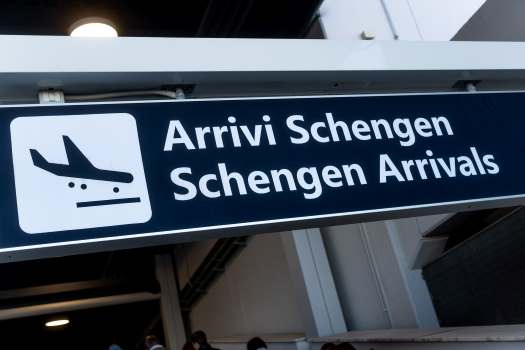Is Jordan Safe to Travel
Explore if Jordan is safe to travel with our expert advice and latest insights on safety, top travel tips, and must-know information for your trip to Jordan.
Is Jordan Safe to Travel? A Must-Read for Every Traveler
-
Jordan is generally safe for tourists, especially in areas like Amman, Petra, Wadi Rum, and the Dead Sea.
-
While Jordan has a low crime rate, be careful of pickpockets in crowded areas and avoid the areas close to Syrian and Iraqi borders.
-
Stay updated on health precautions and road safety, and get a reliable travel insurance plan to avoid any unpredictable expenses related to your trip.
So you’re planning to visit Jordan and wondering, is Jordan safe to travel? Well! The answer depends on the area you are planning to visit. Jordan is considered one of the safest countries in the Middle East for tourists, with history, friendly people, and beautiful landscapes. But as with any place, it’s good to know the local safety conditions.
In this guide, you will learn everything about safety in Jordan so that you can have a great travel experience when visiting Petra, Wadi Rum, or the Dead Sea.
What Travelers Need to Know About Current Safety in Jordan
Jordan is generally a safe place to travel, with some areas to be cautious of. The US Department of State has Jordan at a "Level 2," which means the country is generally safe, but some areas are risky.
You need to avoid visiting areas within 3.5km of the Syrian and Iraqi borders due to terrorism and armed conflict. Also, non-essential travel to refugee camps is not advisable. Despite this, areas like Petra and Wadi Rum are safe and well-guarded.
Terrorism may be a risk for travelers in Jordan, depending on the situation. The country is known for its hospitality and culture, but there are some transnational groups present that may risk your safety.
Tourist areas are generally well protected by the Jordanian authorities, who take safety seriously.
When it comes to scams & crimes, Jordan is one of the safest countries to visit in the Middle East, with a low crime rate compared to the rest of the world. Armed robberies and assaults are rare, but bag snatching and pickpocketing can happen in crowded areas or tourist sites.
Scams on tourists are also not common, but you need to be aware of your surroundings to avoid getting trapped. Despite some risks, Jordan is still a great country to explore.
Regional Considerations for Safety
Having knowledge of regional safety in Jordan is important for having a great time during travel. So, let’s have a look at some of the safe places for travelers as well as areas that require you to be cautious.
Safe Areas for Travelers
Jordan has several areas that are safe for tourists, with strong security and a friendly environment. Here are some of the places that are safe to visit in Jordan.
Amman: This is the capital city of Jordan. It is lively and well-guarded and offers major attractions like the Citadel and Roman Theater. These places are a cultural experience in a safe area.
Petra: This is a historical city in Southern Jordan and a UNESCO World Heritage Site. Petra is a well-set place for tourism, with guides and facilities for the traveler’s safety.
Wadi Rum: With its beautiful desert scenery, Wadi Rum offers Bedouin camps that prioritize guest safety during activities like jeep tours and camel rides.
Aqaba: Jordan’s coastal city on the Red Sea, Aqaba is chill and has lots of water activities in a safe environment.
Dead Sea Region: Several resorts here are designed for tourist comfort and safety, so you can enjoy unique experiences like floating in the mineral-rich waters.
Madaba: Madaba is another safe place where you can explore cultural and religious sites.
Areas to Exercise Caution
Below are some of the areas where you need to be careful due to security. In fact, these regional safety considerations can help you to be safe and sound during your visit.
Borders with Syria and Iraq: As mentioned above, do not travel within 3.5 km of these borders due to ongoing conflicts and cross-border violence.
Refugee Camps: Non-essential travel to refugee camps like Zaatari and Azraq should be avoided unless necessary, as these areas may have unpredictable security.
Remote Areas: Some rural areas may lack adequate infrastructure or emergency services. So, be careful when planning to discover the off-the-beaten-path.
Demonstration Areas: Protests can happen in urban areas like Amman and can disrupt daily life and escalate suddenly. Avoid big gatherings and stay informed about local events.
Health-Related Safety Practices in Jordan
Currently, there are no health-related notices for traveling to Jordan, as per CDC. But, before traveling to Jordan, make sure you get the routine vaccinations like measles, mumps, rubella (MMR), flu (influenza), polio, and hepatitis A and B. Vaccination against typhoid is also advisable if you will be eating or drinking outside of big restaurants.
Everyone who is 6 months and older needs to get the updated COVID-19 vaccine to prevent severe illness. If you have symptoms, stay home until you have been symptom-free for at least 24 hours without fever-reducing meds.
Consider vaccinations for diseases that are common in the region, like meningitis or rabies, if you are around animals. Visitors should avoid contact with camels and camel products to reduce the risk of MERS transmission. Also, stay informed about local health guidelines and practice good hygiene while you are in the country.
Other than vaccinations, Jordan also has a good healthcare system, especially in cities like Amman and Aqaba, where hospitals and clinics are of international standards. Here, the healthcare professionals can communicate in English. Medical facilities outside of these cities are basic, so in case of an emergency, you need to move to Amman or Aqaba for medical attention.
Make sure that you get travel insurance that covers medical care and evacuation, as treatment costs can be high.
Safety During Natural Calamities and Extreme Weather Conditions
Before you go to Jordan, make sure to check out the warnings related to natural disasters. As Jordan is on the Arabian Plate boundary, it is seismically active. The Jordanian Seismological Observatory (JSO) recorded 419 seismic events in 2024, 92 of which were local within the country. So, you need to take precautions and educate yourself on earthquake preparedness and response to minimize the risks.
Apart from this, Jordan has distinct seasonal weather patterns that can affect your travel plans. Summers are hot and dry, mainly in the desert areas, and winters can bring rain and occasional snow in the highlands.
You may also face extreme weather events like flash floods if you visit during the rainy season from October to March. So, you should stay informed about the weather forecast and road conditions, especially when visiting flood-prone or bad weather areas.
Having flexible itineraries helps you to adjust according to the current weather conditions and have a safe travel experience in the country.
Travel Safety Tips When Visiting Jordan
Travel can be amazing and fun, but make sure that you follow the tips below to have a safe journey in Jordan.
-
Greet locals warmly and dress modestly, especially when visiting religious sites or rural areas. Also, be respectful towards local customs during Ramadan when eating, drinking, or smoking in public during daylight hours is not allowed.
-
Use anti-theft bags, hide or lock important items, and use money belts to keep passports, cards, cash, and electronics safe.
-
Be aware of your surroundings while exploring the country. Avoid distractions like excessive smartphone use and trust your instincts to get through the unknown or crowded areas safely.
-
Wear seatbelts, know the local traffic laws, avoid driving at night in high-risk areas, and be aware of aggressive drivers and vehicle conditions. If using local transport, then choose licensed and reputable transport options, research the safest modes, and prioritize well-reviewed services to minimize travel risks.
-
Book hotels in main tourist cities with good reviews and offering facilities such as keycard access, 24-hour front desk, and in-room safes for your personal belongings.
-
Enrol with Smart Traveler Enrolment Program STEP when traveling to Jordan for real-time updates on health, weather, and emergencies. Other than that, you can also consider downloading essential apps for maps, translation, and emergencies. Also, make sure to use portable Wi-Fi devices to stay connected.
-
Tell your family or close friends you trust about your travel plans. Regularly update them on your whereabouts, and have a list of local as well as international emergency contacts. In Jordan, you can call 911 for immediate police and medical attention.
-
Get travel insurance from a reliable provider that covers baggage theft and loss, medical emergencies, trip cancellations, etc., to protect you against unexpected situations when in Jordan.
FAQs About Traveler's Safety in Jordan
1. Do locals speak English in Jordan?
Yes, English is generally spoken in tourist areas, hotels, and by service providers in Jordan. But, in rural areas, English may not be as common. So, learning some basic Arabic phrases can be helpful.
2. Are credit cards accepted, or should I use cash?
Credit cards are accepted in main cities, hotels, and big businesses in Jordan. But carry Jordanian dinars for small shops, markets, and rural areas where cash is preferred.
3. Do I need a local guide or go solo?
Hiring a local guide in Jordan will give you expert knowledge and help you get around sites quickly. While you can go alone in some areas, a guide can improve your travel experience for historical sites. Having a guide with you will provide a deeper understanding of the culture.
4. Can I drink tap water in Jordan, or should I stick to bottled water?
In Amman and other major cities, tap water is treated and is safe to drink. But in rural areas, it’s best to stick to bottled water to stay safe. Always make sure the bottled water is sealed.
5. Is Jordan Safe for Female Solo Travelers?
Jordan is generally safe for solo female travelers, but a basic awareness of your surroundings is a must. Also, avoid traveling to secluded places or at night.

Travel Assistance Wherever, Whenever
Speak with one of our licensed representatives or our 24/7 multilingual insurance advisors to find the coverage you need for your next trip. Contact Here



